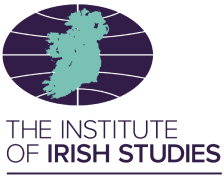Overview
In West Belfast lies the Peace Wall, a manifestation of multifaced messages on political, religious, and communal ideals represented by physical properties of cement, gates, and artwork. There have been discussions on initiatives to take down the walls. However, this remains a fragile state. When thinking about the connectivity of the surrounding spaces and communities, the placing of the Peace Wall(s) blocks any opportunity of cross-communication and produces disorienting effects. However, alternative artistic approaches focusing on sound can create innovative capabilities for sharing these stories and spaces with spatial audio techniques. 1. Divided Spaces ~ 25mins An audio immersive piece focusing on the Peace Wall between the Falls and Shankill roads. Representing connectivity of spaces and experiences through sound to highlight Past, Present, and Future relations with the Peace Wall(s). 2. Peace Wall Belfast Soundwalks (sound walk at the Peace Wall Belfast) ~1hr15min A binaural immersive experience with six soundscapes composed to highlight relationships between realism and perception of different sonic markers or events occurring throughout the year. It questions how we listen to what we’re seeing, and what we’re seeing is it being heard.
Lead Creatives
Dr Georgios Varoutsos
Professor Pedro Rebelo
Collaborating Organisations
SARC: Centre for Interdisciplinary Research in Sound and Music, Queen’s University Belfast
Participating or target groups
Single Identity, Cross Community, Protestant, Unionist and Loyalist, Catholic, Nationalist and Republican, Victims and Survivors, Ex-Combatants, Wider Society, Prisoners & Ex-Prisoners
Aims and Rationale
The motivation for this artistic research lies in the absence of multi-sensory representations of community divisions, particularly sound, in the context of the Peace Wall in Belfast. Drawing on Obert’s (2014) experience as a foreigner, the project seeks to capture the disorientation caused by the physical barriers, both visual and spatial. Through the application of spatial audio technologies, the project explores how sound can transcend these physical barriers, offering a new sensory engagement with the Peace Wall. Art as a Tool for Conflict Transformation The research is grounded in the belief that artistic practice, particularly through immersive sound, can play a vital role in conflict transformation. Drawing on Wallensteen’s (2012) discussion of unresolved peace in Northern Ireland, the project aims to provide alternative narratives and experiences of divided spaces. By focusing on sound, the project offers new forms of communication and challenges the visual dominance in how these contested spaces are perceived. Innovative Perspectives on Peace Wall The project’s objective is to generate innovative audio-based perspectives on the controversial presence of the Peace Walls, offering a sensory reordering that moves beyond visual stimulus. By engaging with sound, the work encourages individuals to reflect on how these walls function not just as physical barriers, but also as auditory landscapes that can be reinterpreted through artistic practice. Engagement and Accessibility through Sound This project offers a unique artistic form of engagement by using spatial audio to capture the transferable properties of sound across the Peace Walls. It invites listeners to experience these spaces in a new way, fostering accessibility to their emotional and social dimensions. The aim is to provoke reflection on the role of art in bridging divides and facilitating new understandings of conflict and community.
Key peace-related issues
Cultural Recognition
Conflicted Histories
Key Information
Lead OrganisationDr Georgios Varoutsos
16/09/2018
16/09/2019
Location
Belfast
Online Resources




